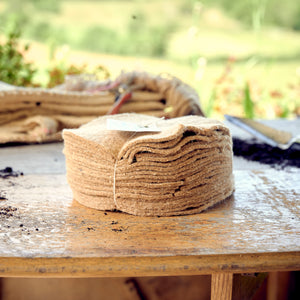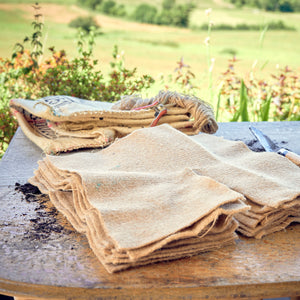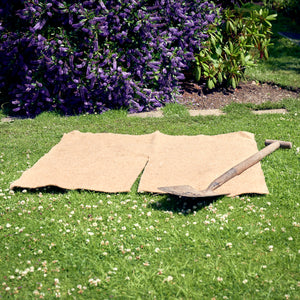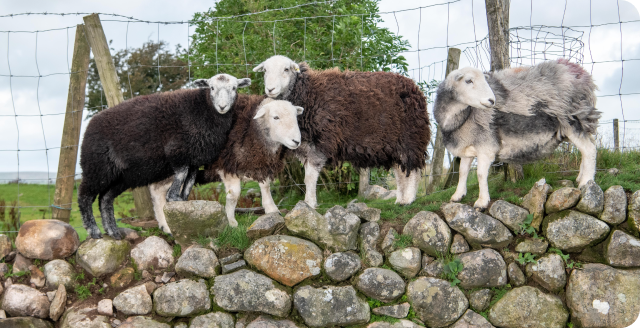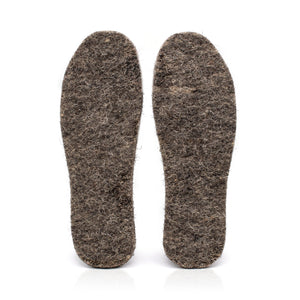Tell me more about this Horticultural Potato Sack
You know how annoying it is when potatoes start sprouting, and they’re no good for cooking anymore? It is such a waste to throw them away! This potato growing sack allows you to keep and cultivate them. Simply fill the bag with compost, sow your sprouted potatoes, water them, and hey presto! In a couple of months you’ll have delicious new potatoes to harvest and enjoy at home!
We love these potato grow sacks because not only do they stop unnecessary landfill but they also allow you to grow your potatoes without the need for a garden. They will sit perfectly on a balcony or a small patio so garden or not, get growing your own spuds!
Tell me more about this Horticultural Potato Sack
You know how annoying it is when potatoes start sprouting, and they’re no good for cooking anymore? It is such a waste to throw them away! This potato growing sack allows you to keep and cultivate them. Simply fill the bag with compost, sow your sprouted potatoes, water them, and hey presto! In a couple of months you’ll have delicious new potatoes to harvest and enjoy at home!
We love these potato grow sacks because not only do they stop unnecessary landfill but they also allow you to grow your potatoes without the need for a garden. They will sit perfectly on a balcony or a small patio so garden or not, get growing your own spuds!
How do you use this potato growing sack?
It’s very easy – even if you’ve never planted or grown anything yourself before! These potato sacks are especially useful if you don’t have much space to plant them in your garden. Just follow these simple steps:
- Fill the sack ¾ full with compost – we like using our Sheep's Wool Compost for Potting! Yes, it’s expensive but you can re-use it several times to grow multiple potato crops.
- Lay the sprouted potatoes (chitted, to use the correct term) on the surface. There is space for about 2, or 3 small ones.
- Cover with compost so it fills the bag to the top.
- Water and leave in a spot that gets a bit of sun.
- Water regularly and leave for around 2 months.
- Lift the flap and rummage around for the potatoes. You can harvest them when they’re still quite small and have them as salad potatoes, or leave them to grow a bit longer so they develop bigger.
Why is throwing away waste food so bad?
You may think ‘but what’s so bad about throwing out a few potatoes?’. Well, if you were throwing them into your compost, that isn’t so bad as the potatoes will breakdown aerobically. Putting organic waste straight into the general waste bin would mean the food would go into landfill. When it goes to landfill, organic waste breaks down anaerobically which would release methane into the atmosphere. Methane is about 80 times worse than carbon dioxide for warming the planet, so either composting organic waste or growing from organic where you can is a great way to help the planet. And that is exactly what this potato grow sack allows you to do! If you want to start composting, try our recycled plastic composter to start your very own compost heap!
Is there anything else I should know about potatoes?
Obviously, everyone knows what a potato is, but have you ever really thought about just how amazing potatoes are? They’re full of good vitamins and minerals and stuffed with nutrients – especially the skin! As well as being really good for you, they’re incredibly versatile and the list of ways to eat them seems endless: you can mash them, bake them and load them with toppings like cheese or chilli or bacon, chop them into chips and fry them, roast them for your Sunday dinner, you could even get a little fancy and stuff the skins with almost anything you like! They’re pretty filling, however you choose to eat them, which can help reduce hunger pains or cravings.
Studies have linked potatoes and their nutrients to a variety of health benefits such as reduced heart risk, improved sugar control, improved digestive health, a boost to your immune system and they can help combat the signs of ageing.
All in all, potatoes are one of the most fantastic foods to eat (as part of a balanced diet, of course!). They’re even naturally gluten-free, meaning they can be enjoyed by almost anyone.
Don’t be a tater hater!








